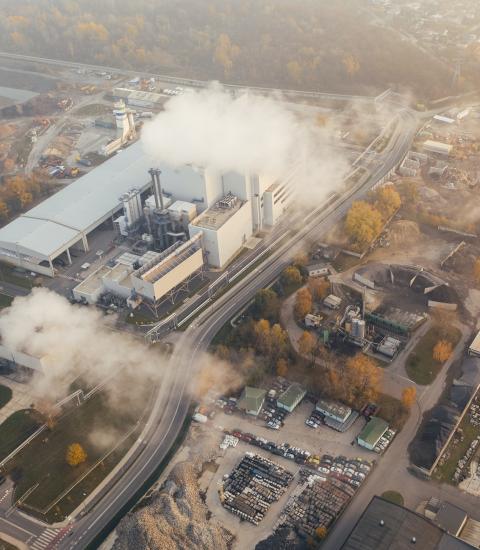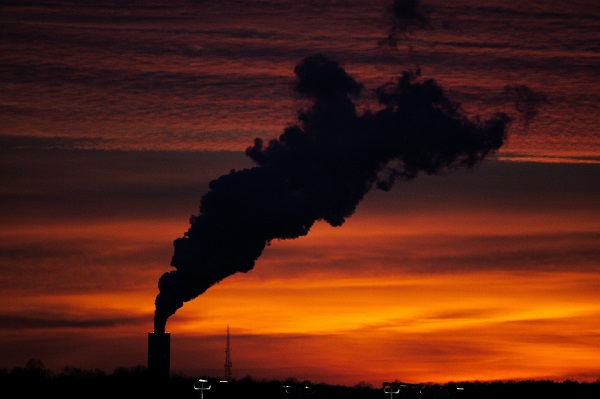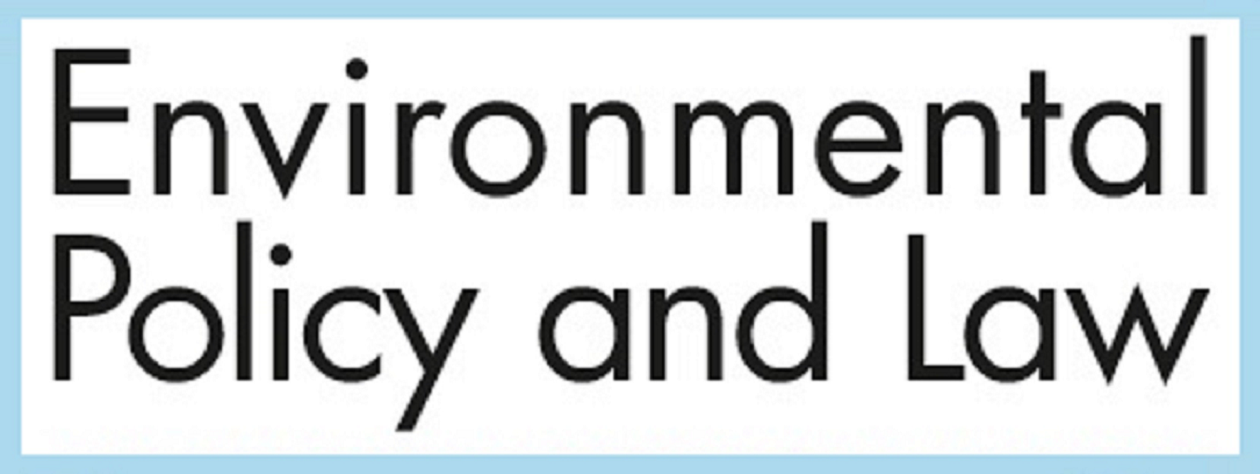
[Posted by: Carmel McNamara]
Paris, France – For the first time, the Council of State (Conseil d’Etat) had to rule on a case regarding the fulfilment of France’s commitments to reduce greenhouse gas emissions. Indeed, Grande-Synthe, a city in northern France, referred the matter to the Conseil d’Etat after it received a refusal from the government to take additional measures in order to meet the objectives of the Paris Agreement.
The French supreme administrative court has first found that the petition of the city, a coastal municipality particularly exposed to the effects of climate change, was admissible. On the merits of the case, the Conseil d’Etat has noted that while France has committed itself to reducing its emissions by 40% in 2030 compared to 1990 levels, it has, in recent years, regularly exceeded the “carbon budgets” it had set itself. Moreover, a decree of April 21, 2020 postponed most of the reduction efforts after 2020. Before final ruling on the request, the Conseil d’Etat is requesting the French government to justify, within three months, how its refusal to take additional measures is compatible with the respect of the reduction path chosen in order to achieve the targets set for 2030.

Paris Climate Agreement
On December 12, 2015, the Paris Climate Agreement was signed in accordance with the Conference of the Parties of the United Nations Framework Convention on Climate Change (UNFCCC) of May 9, 1992. Within this Agreement, the European Union and France committed themselves to tackling the effects of climate change induced in particular by the increase in greenhouse gas emissions. To implement this commitment, the European Union and its Member States have decided to reduce their emissions by 30% by 2030 compared to 2005 levels, with a target of 37% for France. In addition, France has set itself, by national law, an even more ambitious target of reducing its emissions by 40% in 2030 compared to 1990 levels.
The city of Grande-Synthe and its mayor asked the President of the Republic and the French government at the end of 2018 to take additional measures to change the emission curve and to respect, at least, the commitments made by France. Following rejection of their request, they appealed to the Conseil d’Etat, supported by the cities of Paris and Grenoble, as well as by several environmental organisations including Oxfam France, Greenpeace France and “Notre Affaire A Tous.” The Conseil d’Etat has first considered that the request of the city of Grande-Synthe was admissible, this coastal commune of the North Sea being particularly exposed to the effects of climate change. It has also accepted the interventions of the other parties.
Current ruling
First of all, the Conseil d’Etat has noted that France has committed itself, in order to implement the Paris Agreement, to adopt a reduction path in greenhouse gas emissions so that, in 2030, a reduction of 40% compared to their 1990 levels can be achieved.
With regard to the legal scope of the UNFCCC and the Paris Agreement, invoked by the claimants, the Conseil d’Etat has confirmed its previous case law, which is that these international agreements leave on each signatory State to take national measures to ensure their implementation. Nevertheless, it has stated that the objectives set by France as such must be read in the light of these agreements.
The Paris Agreement commitments have been developed at European and national levels. French national law has thus projected a target for 2030 of a 40% reduction compared to 1990 levels within the national territory. To achieve this target, the French government has adopted a reduction path extending over four periods (2015–2018, 2019–2023, 2024–2028, and 2029–2033), each of them with an emission ceiling (called “carbon budget”), progressively decreasing.
As the decree of April 21, 2020 postponed after 2020, and mainly after 2023, some of the emissions reduction effort, the Conseil d’Etat is requesting the French government to justify how the reduction path to 2030 can be respected without stricter measures.
The Conseil d’Etat has noted that for the 2015–2018 period, the projected “carbon budget” has been significantly exceeded. Thus, France only achieved an average reduction in its emissions of 1% per year while the ceiling imposed a reduction around 2.2% per year. In that respect, on April 21, 2020, a government decree amended the 2nd and 3rd "carbon budgets" and established the 4th. This decree lowered the emissions reduction target for the 2019–2023 period and so foresees a discrepancy in the downward trajectory. As a result, some of the initially planned efforts have been postponed, which will imply a reduction of the emission at a path that has never been achieved so far.
Facing these new data, the Conseil d’Etat has considered that it should be provided with adequate information in order to assess whether the refusal to take stricter measures is compatible with the new emission reduction path adopted last April to reach the 2030 target. Therefore, it requests the government to provide, within three months, the appropriate justifications. The Conseil d’Etat also requests the other parties (cities, environmental associations) to provide all relevant additional elements.
If the justifications so provided by the government were not satisfactory, the Conseil d’Etat may then consider requiring to take further steps in order to achieve the target of 40% by 2030.
###
NOTES FOR EDITORS
Contact
Press contacts are Xabi Velazquez, Conseil d’Etat (+ 33 172605834, xabi.velazquez@conseil-etat.fr) and Paul Parikhah, Conseil d’Etat (+33 172605831, paul.parikhah@conseil-etat.fr).
View the original press release here.
About Conseil d’Etat
The Conseil d’Etat (Council of State) exercises two historic missions: adviser to the French government for the preparation of bills, decree, etc. It is also the supreme administrative judge who settles disputes relating to administrative acts. The Council of State is also responsible for managing all of the administrative jurisdiction. conseil-etat.fr
Yann Aguila
In short : with the “Grande-Synthe case”, the Conseil d'Etat declares the appeal of several communes and associations admissible. It asks the government to justify within 3 months that its refusal to take additional measures is compatible with the greenhouse gas reduction objectives set for 2030!
Some comments:
1/ The decision recognizes the interest of (i) several NGOs and (ii) several cities (including the city of Grande Synthe, which is by the sea, and the city of Paris) in taking action against the State "in view of its level of exposure to the risks arising from the phenomenon of climate change": these cities are therefore entitled to bring an action before the court.
2/ At this stage, it is only a first decision, with an investigative measure: the Council of State asks the government to provide justifications on the respect of the objectives of CO2 reduction. But it is already a lot: such an investigative measure is exceptional. The government therefore has an obligation to explain itself, to account for its action before the judge, including for its public policy. Once the government has responded, the court will make the final decision.
3/ On the principle itself, one point is already remarkable: the judge thus accepts to control the government's climate action, and if necessary to censure it if, in fine, it turns out that it is not compatible with the objectives of CO2 reduction. Contrary to what some feared, the Council of State does not consider that this is a question of pure politics that would not fall under the control of the judge. This is indeed a legal issue because the judge controls the government's action with regard to objectives set out in legaltexts.
4/ Last point : the only small limitation of the judgment, of a purely legal nature (which one may regret) concerns the legal effect of the Paris Agreement. The objectives to which the Court refers (and with regard to which it therefore controls the action of the Government) are the objectives set (i) by French law and (ii) by European law, but (iii) not those set by the Paris Agreement. Because the judge considers that this international treaty has no “direct effect” and cannot therefore be directly invoked by an individual before the national court. This is regrettable. But the judge still confers an effect on the Paris Agreement: even if it has no direct effect, it must "be taken into consideration in the interpretation of the provisions of national law".
